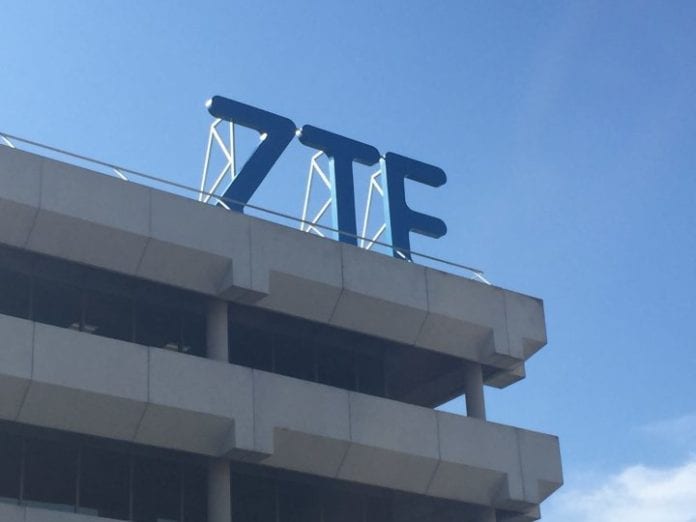The U.S. government says ZTE violated export restrictions between 2010 and 2016 for selling equipment to North Korea and Iran.
ZTE agreed to pay a combined civil and criminal penalty of $1.19 billion, pending approval from the courts, after illegally shipping telecommunications equipment to Iran and North Korea in violation of U.S. regulations.
The U.S. Department of Commerce said ZTE also agreed to audit compliance requirements to prevent and detect future violations, and operate under a seven-year suspended denial of export privileges, which could be activated if any aspect of the deal is not met.
Under terms of the settlement, ZTE has agreed to pay civil penalties of $661 million, $300 million of which will be suspended during the seven-year probationary period. A U.S. court is also considering imposing a criminal fine of $430.49 million on ZTE. In addition, the company has agreed to pay the Department of the Treasury’s Office of Foreign Assets Control $100.87 million.
According to officials, ZTE conspired to evade the U.S. embargo against Iran between 2010 and April 2016 in order to secure deals with Iranian entities to supply and operate telecom networks in the country. The Department of Commerce said the scheme was carried out through the establishment of a number of shell companies. The Chinese company had also been involved in 283 shipments of controlled items to North Korea, including routers, microprocessors and servers.
Last year, The U.S. Department of Commerce introduced export restrictions on the China-based vendor. However, ZTE obtained a temporary general license that allowed the company to continue purchasing components from U.S. suppliers while the settlement was being reached.
The Department of Commerce sanctioned ZTE by adding the firm to the “Entity List,” which created a license requirement to export, re-export or transfer to ZTE any items subject to the Export Administration Regulations.
ZTE said officials will recommend the company be removed from the Entity List, conditioned on court approvals.
“ZTE acknowledges the mistakes it made, takes responsibility for them and remains committed to positive change in the company,” said ZTE Chairman and CEO Zhao Xianming, in a statement. “Instituting new compliance-focused procedures and making significant personnel changes has been a top priority for the company.”
The company said the agreement with U.S. authorities paves the way for future growth strategies.
“With this agreement behind us and our compliance program firmly established, we can confidently grow our business with suppliers, continue to provide innovative technology solutions to our partners and execute our growth strategies as a new ZTE,” Xianming said.
The vendor’s compliance scheme includes a software automation tool designed to screen shipments from ZTE and certain subsidiaries for export control obligations. ZTE said the system is used to determine which items are subject to the EAR, provides embargo and restricted party screening on the transactions, and places shipments on hold that require detailed classification analysis, application of license exceptions or application of licenses when necessary.
The company said it has also made a series of structural and personnel changes, including the establishment of a new compliance committee and the creation of a separate compliance department. The company also said it had trained more than 45,000 employees on export controls, sanctions laws and company policies.
“We are constantly reviewing and improving policies and procedures to keep up with an ever-changing regulatory landscape and working to reinforce the strategic business advantage a strong compliance program has in the marketplace,” said Matt Bell, chief export compliance officer at ZTE.
The vendor estimates a preliminary full-year loss of CNY 2.36 billion yuan ($342 million) for 2016, compared with a profit of CNY 3.21 billion in the previous year due to the impact of the agreement.

